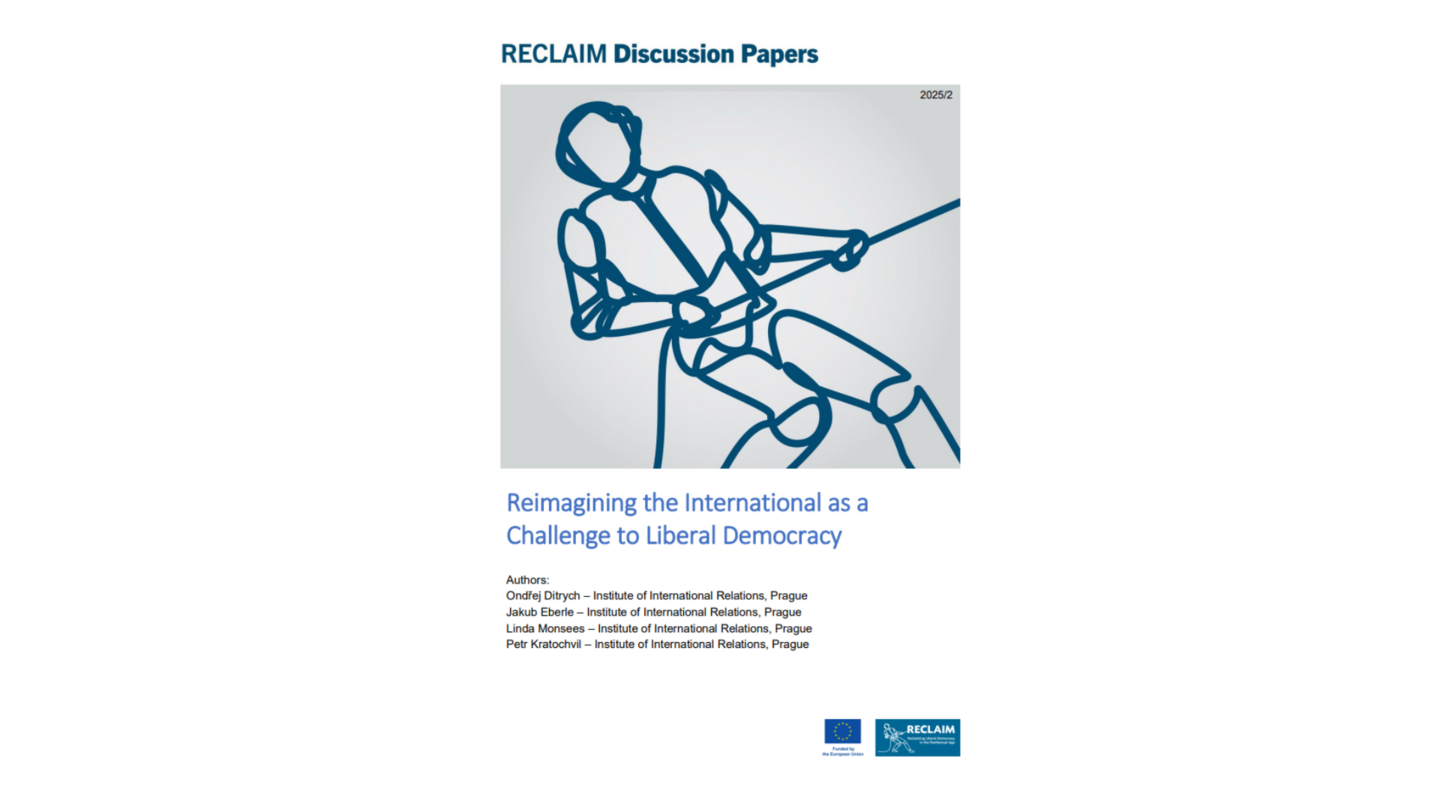Reimagining the International: Surveying Foreign Information Manipulation Landscapes of Power During the COVID-19 Pandemics

This discussion paper, authored by Ondřej Ditrych, Jakub Eberle, Linda Monsees, and Petr Kratochvíl from the Institute of International Relations Prague, explores how foreign information manipulation and interference shaped the political and security landscape of Europe during the COVID-19 pandemic. It examines how disinformation campaigns by Russia and China challenged liberal democracies and how the EU and its member states responded to defend truth and democratic resilience.
How did the COVID-19 pandemic reshape the struggle over truth, disinformation, and the resilience of liberal democracy in Europe?
This pressing question has been addressed by our researchers Ondřej Ditrych, Jakub Eberle, Linda Monsees, and Petr Kratochvíl. Their new discussion paper, published within the EU-funded Horizon Europe project RECLAIM, examines the interaction between foreign information manipulation, domestic political responses, and the broader reconfiguration of liberal democracies under pressure.
The study brings together theoretical insights and detailed case studies to illuminate how Russia’s and China’s strategic disinformation campaigns collided with European security assemblages during the pandemic.
Country case studies
To illustrate these dynamics, the paper provides in-depth analysis of two EU member states:
- The Czech Republic – Counter-disinformation responses initially grew from civil society, with NGOs and informal networks playing a leading role. During the pandemic, controversies such as the China controversy (linked to medical supplies and perceptions of China’s role) and the Free-Vax controversy (over alternative approaches to vaccination) exposed deep societal divisions, with government communication often adding to public mistrust.
- France – In contrast, France approached disinformation from a state-centric perspective, drawing on lessons from Russia’s interference in the 2017 presidential elections. During COVID-19, the government sought to strengthen digital sovereignty and established new institutions such as Viginum to detect foreign digital interference, while conspiracy theories connected to anti-establishment movements fuelled polarisation.
This report uncovers the broader contest between disinformation assemblages and liberal security responses. It demonstrates how questions of truth, sovereignty, and democracy were renegotiated under pandemic conditions – and why these struggles are far from over.
You can read the full report in the discussion paper published here or attached above.